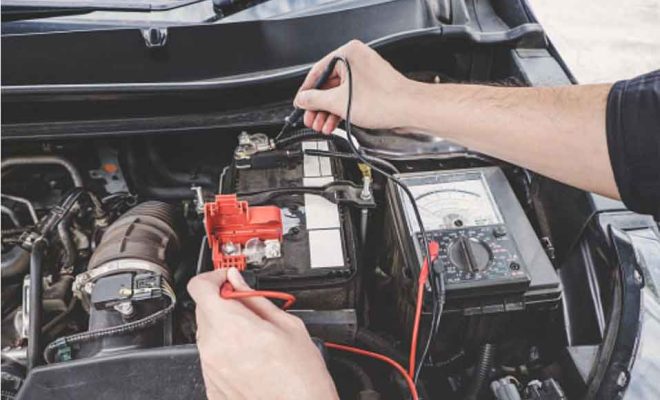Can You Be Electrocuted by a 12 Volt Car Battery?

Car batteries are a crucial component when it comes to running a vehicle as they provide the necessary power for various functions such as starting the engine, running the lights, radio, and other gadgets.
The standard voltage of a car battery is 12 volts. Many people wonder if a 12-volt car battery can electrocute them. The answer to this question is yes, and no.
The truth is, a 12-volt car battery can give off a lethal electrical shock. But, the chances of it happening are rare, and the amount of voltage dangerous to humans must pass an elementary threshold.
The reason for this is straightforward. The amount of electrical current that causes deadly harm to humans typically ranges from 1000 to 2000 milliamps (mA). But a car battery can only deliver a maximum of 400 to 800 amps, which is far less than what someone would need to be electrocuted. Typically, 400 mA is all it takes to paralyze voluntary muscles.
A 12-volt car battery has a comparatively low voltage. This low voltage implies that it won’t produce the same electrical jolt to cause injury. To get a harmful electrocution from a 12-volt car battery, the human body must come in contact with both the positive and negative termini sending an electrical current passing through the body.
Moreover, a 12-volt car battery is not designed to deliver a lethal shock. The battery operates on low voltage, and any small electrical shock from it is not likely to cause significant harm.
However, one can get electrical shocks from a car battery while working on car systems with a metal object or tool that creates a connection with both the positive and negative terminals. The connection causes the current to flow and can result in an electric shock.
It is crucial to handle the car battery with care and ensure the terminals do not come into contact with a metal object while handling them. It includes avoiding touching or connecting battery cables while the vehicle’s engine is running.
In conclusion, while a 12-volt car battery may give off an electrical shock, the risk of it causing death is slim to none. Yet, it is essential to exercise caution when handling car batteries and avoid creating an electrical circuit by allowing the positive and negative terminals to come into contact with each other. Remember that nothing can replace caution while working with electricity.






